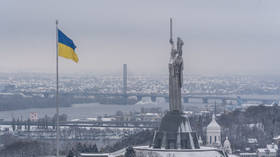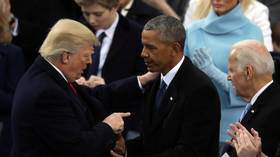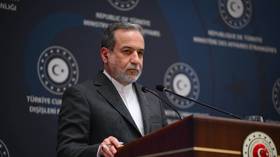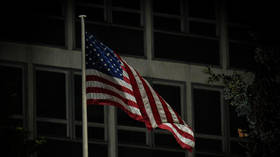India congratulates Russia on lunar mission launch
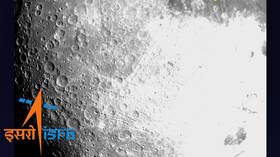
The Indian Space Research Organization (ISRO) on Friday congratulated its Russian counterpart Roscosmos for the successful launch of its first lunar mission in 47 years. India launched its own Moon exploration mission, Chandrayaan-3, last month.
The state-run Indian space organization exchanged greetings with Roscosmos, hailing the launch of the Luna-25 probe as “another meeting point in our space journeys.”
Congratulations, Roscosmos on the successful launch of Luna-25 💐Wonderful to have another meeting point in our space journeys Wishes for 🇮🇳Chandrayaan-3 & 🇷🇺Luna-25 missions to achieve their goals.
— ISRO (@isro) August 11, 2023
The probe, Russia’s first lunar mission in nearly 50 years, lifted off at 2:11am Moscow time on Friday from the Vostochny Cosmodrome in the Russian Far East. Between September 1958 and August 1976 the USSR conducted 24 official ‘Luna’ missions.
The Russian spacecraft is expected to touch down on the Moon on August 21, just a few days ahead of India’s Chandrayaan-3. Previously, Roscosmos estimated August 23 as the landing date, coinciding with the Indian spacecraft, which was launched on July 14.
The traditional allies are engaged in a friendly rivalry to explore the Moon, with both Luna-25 and Chandrayaan-3 targeting the lunar south pole. Russia is aiming to become the first country to achieve a soft landing on the Moon’s south pole, an area which is believed to contain valuable reservoirs of water ice. Roughly the size of a small car, Luna-25 will be tasked with “taking (samples) and analyzing the soil” as well as “conducting long-term scientific research,” Roscosmos said.
The Indian mission, which achieved a crucial milestone by entering lunar orbit on August 5, aims to demonstrate “end-to-end capability in safe landing and roving on the lunar surface,” according to ISRO. Chandrayaan-3 is due to run experiments for two weeks at the Moon’s south pole, where traces of water ice have been detected by NASA in the region’s shadowed craters.
The two missions have opened up a space race with the US and China, which have unveiled advanced lunar exploration programs targeting a similar spot on the Moon, even though earlier exercises were aimed at the equatorial zone.



